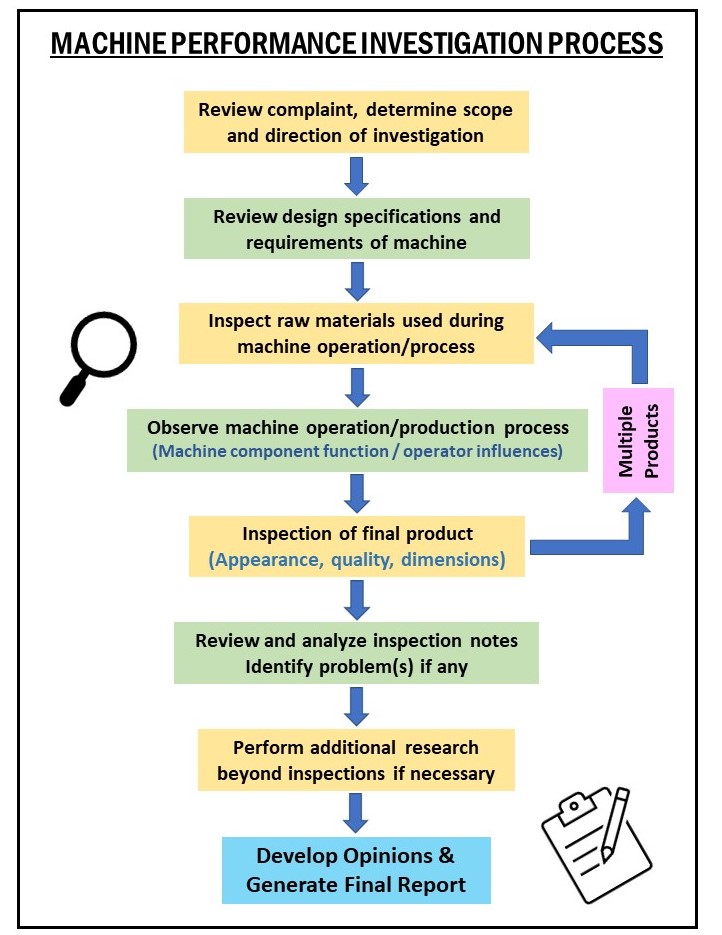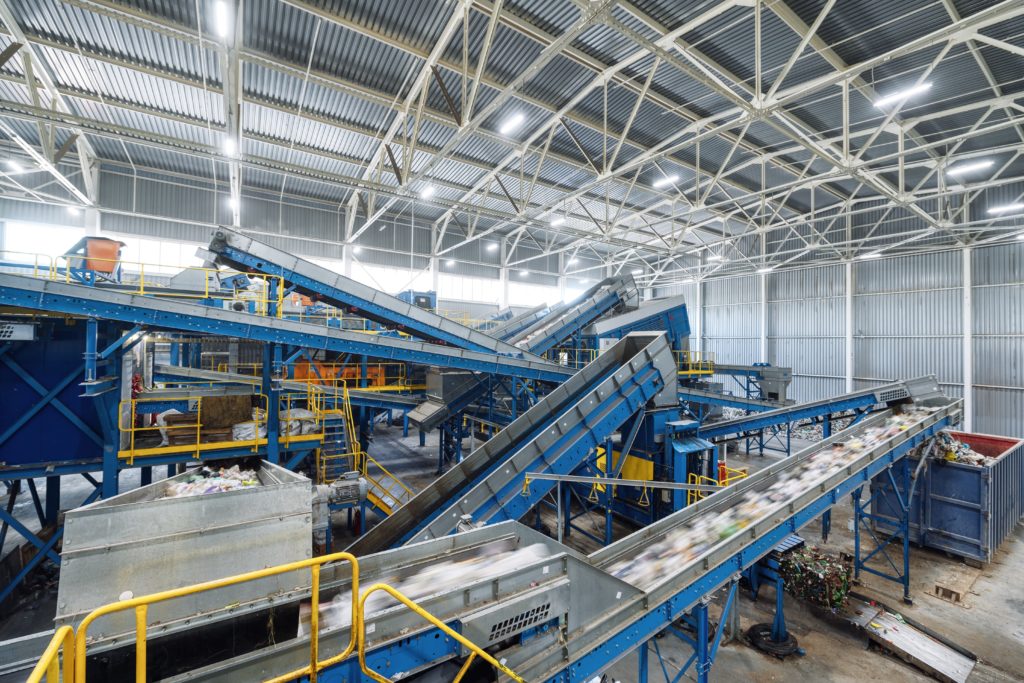Forensic engineers may be called upon to investigate a broad array of problems concerning a machine. Cases involving physical injuries and even death are a large part of what we investigate in order to determine what caused the accident to happen and who may be at fault. Occasionally, problems with a recently designed custom machine do not cause a physical injury, but instead cause a “financial” injury. This type of “injury” can negatively impact the machine designer, the machine purchaser, or possibly both. Financial injuries can be quite substantial, just as physical injuries can be, and may severely impact a company’s cash flow which can make or break a company. A refusal to pay a designer/builder of a machine or paying for a machine that ends up not meeting the agreed upon performance specifications can have catastrophic consequences for many businesses, especially for small ones.
There are similarities and differences as to how a machine performance case or a machine injury case is investigated. However, a case involving a machine performance dispute can easily be much more involved due to a machine’s complexity and the requirement to show how it has or has not specifically met all the required original design specifications. Following is a very general flow chart as to how this type of investigation might be approached.
By thoroughly completing the first two items in the flow chart, the investigation can then be carried out much more efficiently, saving time as well as money for the investigator’s client. During this time, the investigator will learn the specifics of the case which may possibly help him/her to identify items that need to be focused on or questions needing to be answered during the machine inspection process.
Planning for an efficient and successful machine inspection involves communication and scheduling with investigators, machine operators, legal representatives, and management personnel. An adequate raw material supply must also be available for cycling the machine so its functions may be observed, and so that a final product is produced for inspection. The forensic engineer must be prepared to work quickly and with intent in order to gather the information needed for an accurate and complete engineering analysis. Thorough preparation will maximize the amount of useful information that is collected.
Below is a partial list of some items that can influence overall machine performance and output. Some of these items may or may not not be observed or evident during the in-person machine inspection and will require additional effort and research outside of the actual machine inspection process to obtain necessary data.
Issues often attributable to poor mechanical/electrical design:
- Downtime due to equipment component failure (sub-par mechanical and electrical parts)
- Downtime due to poor programming
- Excessive minor production stops
- Losses due to overall machine speed
- Excessive power/utility consumption
- Excessive dimension change downtime
- Poor ergonomic design (human / machine interaction)
Issues caused by owner’s/operator’s actions or poor planning:
- Operators not properly trained on machine operation / proper setup
- Machine not properly maintained
- Market conditions changed, output not what is needed now
- Pressures due to economic fluctuations (i.e. PPI or inflation) affect raw materials selection, cause reduced demand for production, or even cause an unforeseen necessary change in the final product that the new machine is not capable of producing
It is important to note that communication with multiple persons involved in the case will be occurring during all stages of preparation and investigation in order to collect the information and evidence that will be needed for forming final opinions. Once inspections, research, and fact gathering have been completed, it is time to review and analyze all the data collected. During this process, questions may arise that require further investigation or research. Final opinions based on research, inspection data, and the engineer’s expertise can then be formed, documented, and presented to the client in the final report.
Note that the investigative process presented here could be applied to investigations involving a single machine, a manufacturing line, or to an entire manufacturing facility. Please call our experienced machine design engineers at Warren should you need the performance of a machine evaluated.
Bob Hickman is a Licensed Professional Engineer and Certified Machinery Safety Expert. He has over 30 years of manufacturing and machine design experience in production and quality-driven environments. Bob holds a Bachelor of Science in Mechanical Engineering from Clemson University. Over his 30-year engineering career, Bob has designed many custom manufacturing machines and processes that improved quality, productivity, reliability, and safety. He designed several machines to automate manual processes, replacing inefficient/unreliable manual equipment and has assisted with plant layout/production line planning. He has significant experience with pneumatic systems and components, as well as hydraulics. Bob regularly investigates personal injury, wrongful death, and product liability claims, as well as property damage claims involving machinery and equipment in a variety of environments for both insurance adjusters and attorneys. Bob has an in-depth knowledge of many standards with emphasis on ANSI B11 standards for machine tool safety.





